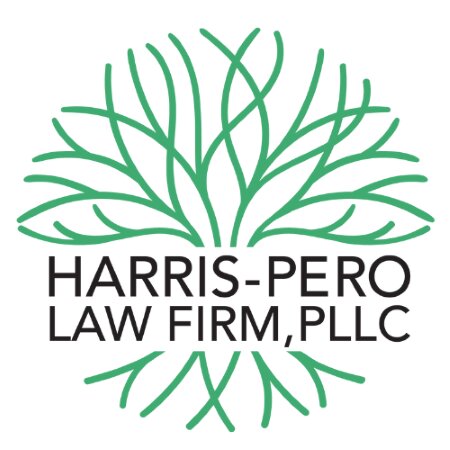Best Tax Lawyers in New York
Share your needs with us, get contacted by law firms.
Free. Takes 2 min.
Or refine your search by selecting a city:
List of the best lawyers in New York, United States
About Tax Law in New York, United States
Tax law in New York covers a wide range of regulations and statutes that govern how individuals and businesses are taxed by the state. In addition to federal taxes owed to the Internal Revenue Service (IRS), residents and businesses in New York must comply with state taxes including income tax, sales tax, property tax, and various excise taxes. The tax landscape in New York is particularly complex because of its unique local taxes, city taxes within New York City, and frequent changes in tax statutes and rates. Understanding and navigating these obligations is essential for tax compliance and financial well-being.
Why You May Need a Lawyer
There are several situations where you may require the assistance of a lawyer experienced in New York tax law. Common scenarios include:
- Receiving an audit notice from the New York State Department of Taxation and Finance
- Disputing a tax assessment or challenging penalties and interest
- Facing allegations of tax evasion or fraud
- Needing help with complex estate or gift tax planning
- Dealing with sales tax issues for your business
- Understanding the tax implications of buying or selling real estate
- Resolving outstanding tax debts or negotiating settlements
- Ensuring compliance when operating or expanding a business in New York
A qualified tax attorney can help you understand your rights and obligations, communicate with tax authorities on your behalf, and devise effective strategies to minimize liability while addressing compliance issues.
Local Laws Overview
New York tax laws are administered primarily by the New York State Department of Taxation and Finance. Key components of local tax law include:
- New York State Income Tax: Individuals who are residents or earn income in New York are subject to state income tax, with rates that increase based on income brackets. New York City and Yonkers have their own additional income taxes.
- Sales Tax: The combined sales tax rate includes state, county, and sometimes city sales taxes. The rate varies depending on the locality, with New York City having one of the highest combined rates.
- Property Tax: Real property taxes are assessed by local governments and are based on the value of the property. Exemptions and abatements may be available for certain groups, such as seniors and veterans.
- Estate and Gift Tax: New York imposes its own estate tax, which applies separately from the federal estate tax system. There is currently no state gift tax, but gifts may affect estate tax calculations.
- Business Taxes: Corporations, partnerships, and limited liability companies may be subject to various taxes, such as the corporate franchise tax, sales tax, and minimum filing fees.
Understanding these laws and keeping up with statutory changes is essential for staying compliant and avoiding unexpected liabilities.
Frequently Asked Questions
What is the current income tax rate in New York State?
New York State personal income tax rates are progressive and range from approximately four percent to nearly eleven percent for the highest earners. Your exact rate depends on your taxable income level.
Do I need to pay city taxes in addition to state taxes?
If you live or work in New York City or Yonkers, you may owe additional city income taxes on top of New York State taxes.
How do I know if I am considered a resident for tax purposes?
Residency is generally determined by your domicile and the number of days you spend in New York. You may be considered a resident if you maintain a permanent place of abode and spend 184 days or more in the state during the tax year.
What should I do if I receive an audit notice from New York tax authorities?
If you receive an audit notice, it is important to respond promptly and consult with a tax attorney or qualified tax professional to ensure your rights are protected and the audit is handled correctly.
What types of business taxes might I owe in New York?
Businesses in New York may be subject to the corporate franchise tax, sales tax, metropolitan commuter transportation mobility tax, and various local and industry-specific taxes.
Can I settle my tax debt for less than the full amount owed?
In some circumstances, New York allows taxpayers to negotiate an Offer in Compromise or structured payment plan if they are unable to pay the full amount owed. Eligibility and approval depend on your specific circumstances.
How are property taxes calculated in New York?
Property taxes are determined by the assessed value of your property and the tax rates set by local governments. Assessments and rates vary by municipality.
Are there tax exemptions or credits available in New York?
Yes, several exemptions and credits are available, such as the STAR exemption for homeowners, Earned Income Tax Credit, and various business incentives. Eligibility requirements apply for each program.
Is there a state gift tax in New York?
New York does not currently impose a separate state gift tax, but large gifts made within three years of death may be included in the taxable estate for estate tax purposes.
How can a tax lawyer help with tax disputes?
A tax lawyer can represent you in communications with state or city tax agencies, negotiate settlements, file appeals, and ensure your legal rights are protected throughout the process.
Additional Resources
If you need more information or assistance on tax issues in New York, consider consulting the following resources:
- New York State Department of Taxation and Finance - The main state tax authority for individual and business taxes
- Internal Revenue Service (IRS) - For information on federal tax obligations
- New York City Department of Finance - Administers city taxes, including income and property taxes for NYC residents
- Legal Aid Society and local bar associations - For free or low-cost legal assistance on tax issues
- VITA (Volunteer Income Tax Assistance) and TCE (Tax Counseling for the Elderly) programs - Offer free basic tax help for qualified individuals
Next Steps
If you are facing a tax issue or need legal advice about your tax obligations in New York, gather all relevant documents and information about your situation. Consider consulting with a qualified tax attorney who can evaluate your case and explain your rights and options. You can contact your local or state bar association to find reputable tax lawyers in your area. For many issues, it is important to act quickly to avoid penalties or loss of rights to appeal. Make a list of your questions and concerns, and schedule a consultation to discuss the best strategy for resolving your tax matters efficiently and effectively.
Lawzana helps you find the best lawyers and law firms in New York through a curated and pre-screened list of qualified legal professionals. Our platform offers rankings and detailed profiles of attorneys and law firms, allowing you to compare based on practice areas, including Tax, experience, and client feedback.
Each profile includes a description of the firm's areas of practice, client reviews, team members and partners, year of establishment, spoken languages, office locations, contact information, social media presence, and any published articles or resources. Most firms on our platform speak English and are experienced in both local and international legal matters.
Get a quote from top-rated law firms in New York, United States — quickly, securely, and without unnecessary hassle.
Disclaimer:
The information provided on this page is for general informational purposes only and does not constitute legal advice. While we strive to ensure the accuracy and relevance of the content, legal information may change over time, and interpretations of the law can vary. You should always consult with a qualified legal professional for advice specific to your situation.
We disclaim all liability for actions taken or not taken based on the content of this page. If you believe any information is incorrect or outdated, please contact us, and we will review and update it where appropriate.
Browse tax law firms by city in New York
Refine your search by selecting a city.















